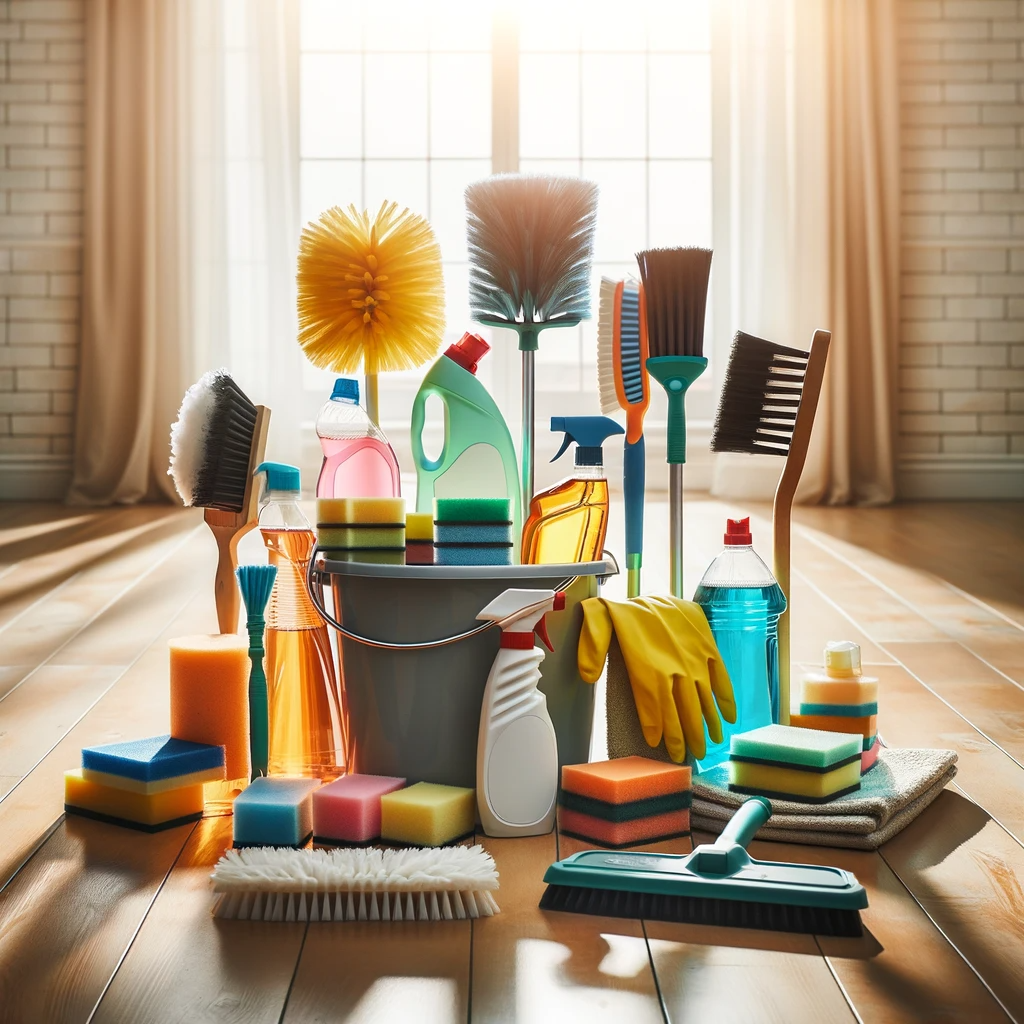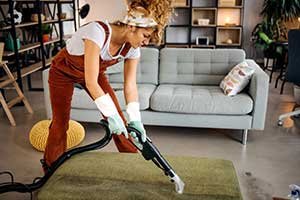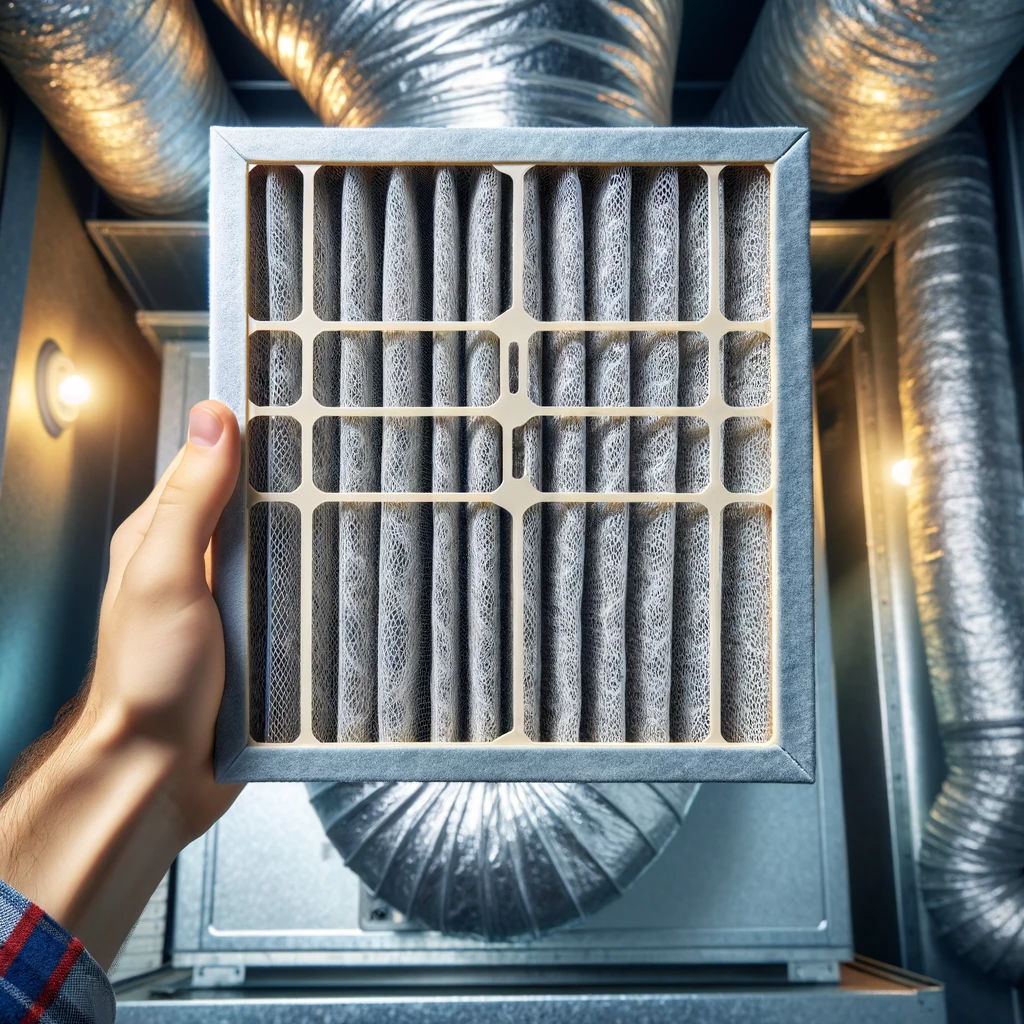Table of Contents
Unwanted smells in your home can come from various sources. Understanding these sources is key to effectively tackling them. Some odors might point to serious issues like mold or decay, which often need expert attention. But many are less critical and can be handled easily. This guide will help you identify the root causes of these unexpected odors and offer reliable strategies for long-lasting odor elimination.
How to Find the Source of a Bad Smell
Are you playing detective in your own home, trying to track down an elusive bad smell? You’re not alone. Unpleasant odors can pop up seemingly out of nowhere, turning your cozy haven into a bit of a puzzle. Fear not, for we have some strategies to help you identify the source and restore freshness to your home.
1. Start with the Usual Suspects:
- Kitchen: Often the epicenter of household odors, check for expired food, unemptied trash, or a dirty garbage disposal.
- Bathroom: Look for mold or mildew, especially in less ventilated areas, or stagnant water in drains.
- Laundry Room: A musty washing machine or forgotten laundry can be the culprit.
2. Follow Your Nose:
- Use your sense of smell to guide you. Sometimes the intensity of the odor increases as you approach the source.
3. Check Hidden Areas:
- Investigate behind furniture, in closets, and other out-of-sight places where dust, mold, or forgotten items might linger.
4. Consider External Factors:
- Sometimes, the source isn’t inside but outside, like a nearby garbage bin or stagnant water in gutters.
5. Think About Timing:
- Does the smell appear at certain times of the day or in specific weather conditions? This can hint at the source, like plumbing issues or external environmental factors.
6. Look for Moisture Issues:
- Dampness can lead to mold growth, a common source of bad smells. Check for leaks, condensation, or poor ventilation.
7. Don’t Ignore Your Pets:
- Pet-related odors can come from litter boxes, beds, or even a favorite resting spot.
8. Seek Professional Help if Needed:
- If all else fails, or if you suspect a serious issue like mold or pest infestation, it might be time to call in the experts.
Understanding Dangerous Odors in Your Home

When it comes to our homes, we all want to ensure they’re safe and comfortable. But sometimes, certain odors can be more than just unpleasant — they can be warning signs of danger. Understanding these hazardous odors is key to maintaining a healthy living environment. Here’s a look at some dangerous smells you should be aware of:
1. Musty or Moldy Smells:
- Significance: These odors often indicate mold or mildew growth, which can lead to health issues, especially for those with allergies or asthma.
- Action: Inspect for visible mold and address any moisture problems. Consider a professional assessment if the smell persists.
2. Gas or Rotten Egg Odors:
- Significance: This could be a sign of a natural gas leak, which is highly dangerous and can lead to explosions or poisoning.
- Action: If you detect this smell, leave the area immediately and contact your gas company or emergency services.
3. Burning or Electrical Smells:
- Significance: Often indicative of electrical problems, these smells can precede electrical fires.
- Action: Unplug and inspect electrical devices in the area. If the source isn’t obvious, call an electrician.
4. Chemical or Acrid Smells:
- Significance: This could point to the presence of volatile organic compounds (VOCs) in your home, often from paints, solvents, or cleaners, which can affect indoor air quality and health.
- Action: Increase ventilation and identify potential chemical sources. Seek alternatives with lower VOC content.
5. Sewage or Rotten Odors:
- Significance: These smells may indicate a broken sewer pipe or vent, leading to potential health risks from sewer gas.
- Action: Inspect plumbing fixtures and contact a plumber if necessary.
6. Sweet, Syrupy Smells:
- Significance: Oddly, a sweet smell can be a symptom of a carbon monoxide leak, a deadly, odorless gas.
- Action: Ensure you have working carbon monoxide detectors and check fuel-burning appliances for leaks.
7. Persistent Pet Odors:
- Significance: Beyond being unpleasant, strong pet odors can also signal unsanitary conditions that might affect health.
- Action: Deep clean pet areas and consult a vet to rule out any health issues with your pet.
Recognizing and responding to these odors promptly can prevent potential health risks and keep your home environment safe. Regular maintenance, proper ventilation, and awareness are your best defenses against these hidden dangers. Remember, when in doubt, seeking professional advice is always a wise decision.
How to Get Rid of Powerful Odors
Looking to freshen up your home and get rid of persistent odors? The answer lies beyond just using multiple air fresheners or setting out bowls of potpourri. While these can provide temporary relief and a pleasant aroma, they often just mask the underlying issues. Here’s a comprehensive approach to effectively remove odors at their source:
Banishing Mold Odors

Detect and Address Mold: Start by inspecting damp areas like basements, bathrooms, and under sinks, as mold loves moisture. Sometimes, mold hides in less obvious places like behind walls. If you can’t spot it, a restoration company can help with tools like moisture meters to find hidden mold.
Cleaning Process: Create a simple cleaning solution with household detergent and water, and scrub the affected surfaces. Avoid bleach since it doesn’t kill mold spores, which can lead to faster regrowth. After cleaning, thoroughly dry the area with ventilation, fans, or dehumidifiers. Make sure it’s completely dry before considering repainting or reconstruction.
Dealing with Carpets: If your carpet has absorbed mold odors, address any humidity issues first. A homemade deodorizer made of white vinegar and warm water can help. Spray the mixture on the carpet, then sprinkle baking soda and let it sit for a few hours before vacuuming. Always do a spot test to avoid damaging delicate materials.
Professional Assistance: For stubborn or extensive mold problems, it’s best to call in professional mold remediation services. Companies equipped with industrial-grade machines and experienced in mold removal can ensure thorough cleaning and drying, preventing future mold growth.
Tackling Cigarette Odor

Ventilation and Cleaning: The first step is to air out the space. Open windows and use fans to circulate fresh air, which helps in dissipating the smoke smell. Fabrics such as curtains, upholstery, and carpets are particularly adept at trapping smoke odors. Washing or dry cleaning these items can make a significant difference. For items that can’t be washed, a homemade solution of water mixed with vinegar or baking soda can be gently applied to clean and deodorize.
Attention to Hard Surfaces: Don’t overlook hard surfaces; cleaning them with a vinegar and water solution can help eliminate lingering odors. This includes tables, walls, floors, and even the insides of cabinets and drawers.
Odor Absorption: Natural odor absorbers like activated charcoal, baking soda, or coffee grounds can be placed around rooms to soak up the smoky smell. For persistent odors, repainting walls and ceilings with an odor-sealing primer can lock in and neutralize the smell.
Advanced Solutions: Investing in air purifiers, particularly those with HEPA filters, can filter out residual smoke particles from the air. Deodorizing sprays specifically designed to tackle smoke odors can also be helpful. In cases of deep-set odors, particularly in carpets and upholstery, professional cleaning services might be necessary for a more thorough job.
Prevention: The most effective way to avoid cigarette odors is to prevent them. Avoid smoking indoors and maintain a regular cleaning routine to prevent the buildup of smoke residue.
Winning the Battle Against Pet Odors

Living with pets means facing the challenge of pet odors in your home. While they bring joy, pets can leave behind a distinct smell that requires regular attention. Here are some practical tips to keep your home smelling fresh:
Regular Grooming and Cleaning: Bathing your pets regularly and grooming them according to their needs are essential first steps. Equally important is the routine cleaning of their favorite spots, including beds, crates, and litter boxes. Washing these items with pet-safe detergents helps remove odors at their source.
Dealing with Carpets and Upholstery: Soft furnishings easily trap pet odors. Use a steam cleaner or a pet-friendly cleaning solution for a deep cleanse. For airborne odors, consider an air purifier with a HEPA filter and use natural air fresheners like baking soda to neutralize smells without chemicals.
Managing Accidents: For pet accidents, enzymatic cleaners are effective in breaking down and neutralizing stains and odors. Regular litter box maintenance and using odor-neutralizing litter also help in controlling odors.
Ventilation and Floor Cleaning: Keep your home well-ventilated to disperse pet odors. Regularly mop your floors with a pet-safe cleaner to keep the environment fresh.
Professional Help for Stubborn Odors: If you’re dealing with persistent odors, don’t hesitate to call in professional cleaning services for a more thorough approach.
How to remove other General Odors in your home
Unpleasant odors also find their way into various corners of our homes, from the kitchen and bathroom to the basement, as well as soft surfaces such as carpets and pet areas, can harbor stubborn odors. Here’s how you can tackle these stubborn smells without breaking the bank:
1. Enhancing Indoor Air Quality

Fresh air is essential in combating indoor odors. Regularly opening windows and using fans not only circulates fresh air but also helps dispel any stale or musty odors, significantly enhancing the overall air quality in your home. This is particularly effective in high-humidity areas or rooms without proper ventilation, like kitchens and bathrooms.
2. Keeping Cleaning Tools Odor-Free

Cleaning tools, often overlooked, can be a hidden source of odors. Mops, cloths, and sponges should be washed and dried after each use to prevent them from becoming breeding grounds for bacteria and mold, which contribute to unpleasant smells. This simple habit ensures that your cleaning efforts are hygienic and effective.
3. Kitchen Smell Solutions

- Trash Can: Regularly cleaning your trash can with a disinfecting cleaner not only reduces odors but also keeps away germs and bacteria. Adding baking soda at the bottom absorbs smells and is a natural deodorizer.
- Fridge: An open box of baking soda in your refrigerator acts as an odor neutralizer. Replace it monthly to maintain effectiveness. Also, regularly clean and organize the fridge to prevent odor buildup from expired or spilled foods.
- Dishwasher: Leftover food particles in dishwashers can cause unpleasant odors. Monthly cleaning with a specialized dishwasher cleaner or a vinegar and baking soda mix can keep your dishwasher fresh and hygienic.
4. Bathroom Odor Fixes

- Toilet: Regular disinfection of the toilet, especially around the base and rear, is crucial in preventing odor buildup. Consider using natural cleaning agents like vinegar or lemon juice for a chemical-free clean.
- Sink Drain: A mixture of baking soda and vinegar, followed by hot water, poured down the sink drain, tackles odor-causing residue and keeps your sink smelling fresh.
5. Refreshing Your Upholstery

Soft furnishings can absorb a variety of smells over time. Cleaning them with suitable upholstery cleaners or a homemade solution of water and mild detergent can help. For a quick refresh, baking soda is effective in absorbing odors. Let it sit for a few hours and then vacuum, leaving your upholstery smelling fresh.
6. Routine Laundry

Accumulated dirty laundry can lead to a musty odor. Regular washing, especially of items like bedding and towels, is vital. Adding fragrance boosters or using scented detergents can enhance the freshness of your clothes and linens.
7. Air Filter Maintenance

Air filters in your heating and cooling systems play a significant role in maintaining indoor air quality. A clogged filter not only reduces efficiency but can also circulate dust and odors. Regular replacement of these filters ensures cleaner air and a fresher-smelling home.
By implementing these practical and thorough strategies, you can effectively maintain a pleasant and odor-free environment in your home. Remember, consistency in these habits is key to enjoying a consistently fresh and welcoming living space.
Professional Help
At Cleanmate in Philadelphia PA, we understand that battling household odors can be a daunting task. That’s why we offer a range of specialized services designed to tackle even the toughest smells, ensuring your home remains fresh and inviting.
Antibacterial Misting for Strong Odors: Our advanced antibacterial misting service is perfect for neutralizing strong, persistent odors. This treatment not only eliminates unpleasant smells but also disinfects, leaving your home both odor-free and hygienic. It’s particularly effective in areas where odors linger despite regular cleaning.
Upholstery Cleaning for Fabric Odors: Soft furnishings can trap odors over time. Cleanmate’s upholstery cleaning service in Philadelphia uses specialized techniques and solutions to deep clean and deodorize your sofas, chairs, and other fabric-covered furniture, reviving them and leaving them smelling fresh.
Professional House Cleaning for General Odors: For a comprehensive approach to odor elimination, our professional house cleaning service covers every corner of your home. From kitchens and bathrooms to living areas and bedrooms, we ensure that every space is not just clean but also free from any lingering odors.
With Cleanmate, you’re getting more than just a cleaning service; you’re getting a partner in maintaining a pleasant, odor-free home environment. Let us help you create a fresher, cleaner space where you can relax and enjoy the comfort of your home.
Request a Free Online Estimate or Call (267) 433 – 3399 Today!


